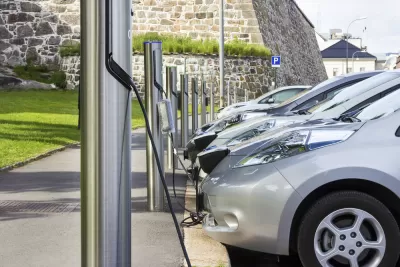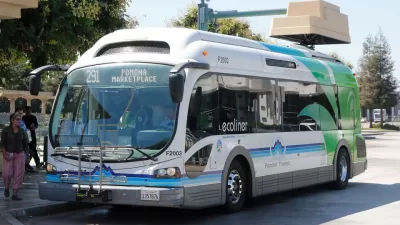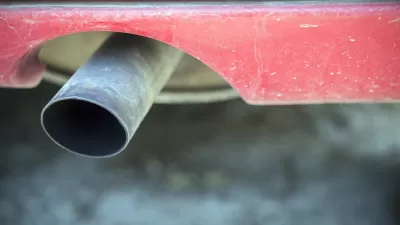The biggest obstacle to the adoption of electric vehicles in California, a shortage of charging infrastructure, just became a lot more manageable thanks to $200 million from Volkswagen stemming the from the dieselgate settlement.

The California Air Resources Board (CARB), the state's clean air agency that also implements most of the the state's laws and regulations designed to reduce greenhouse gas emissions, approved the first installment of the $800 million settlement with Volkswagen Group of America on July 27. The massive award stems from the illegal and intentional use of software in VW's diesel vehicles that enabled them to cheat on emissions tests, but when driven on the road, the same vehicles would "spew up to 40 times the allowed amount of nitrogen oxide (NOx) into the atmosphere," often referred to as 'dieselgate.'
"The $800 million ZEV [zero emission vehicle] investment commitment is part of an agreement by the company with CARB, U.S. EPA, the California Department of Justice and the U.S. Department of Justice that combines mitigation and penalties to fully resolve all of the environmental harm from VW’s actions," notes CARB's July 27 press release.
"The funds will be invested by Electrify America, a subsidiary of VW created for that purpose, in four installments of $200 million each over the next 10 years in projects identified in four separate 30-month Investment Plans approved by CARB through a public process."
The $800 million to be used "over the next 10 years on zero emission vehicle (ZEV) infrastructure, education, and access activities to support increased adoption of ZEV technology in California," according to the March 8, 2017 California ZEV Investment Plan: Cycle 1 [pdf].
"The vote came only after Electrify America modified its spending plan to increase the number of charging stations in disadvantaged communities," reports Chris Megerian, who writes about climate change and California for the Los Angeles Times' Sacramento office.
Volkswagen's investment could become an important part of the state's efforts to increase the number of zero-emission vehicles on the road. It's estimated that the company's spending will provide up to 8% of the necessary charging infrastructure in coming years.
A University of California study released last month identified the lack of access to electric vehicle (EV) chargers as the main obstacle to meeting California's goal of getting more than 4 million zero-emission vehicles on the road in California by 2030.
Related: "California should approve VW 'Electrify America' plan for electric-car charging: CARB analysis," by John Voelcker for Green Car Reports.
Hat tip to David McCoard.
FULL STORY: Volkswagen gets green light for charging stations under settlement plan

Maui's Vacation Rental Debate Turns Ugly
Verbal attacks, misinformation campaigns and fistfights plague a high-stakes debate to convert thousands of vacation rentals into long-term housing.

Planetizen Federal Action Tracker
A weekly monitor of how Trump’s orders and actions are impacting planners and planning in America.

In Urban Planning, AI Prompting Could be the New Design Thinking
Creativity has long been key to great urban design. What if we see AI as our new creative partner?

King County Supportive Housing Program Offers Hope for Unhoused Residents
The county is taking a ‘Housing First’ approach that prioritizes getting people into housing, then offering wraparound supportive services.

Researchers Use AI to Get Clearer Picture of US Housing
Analysts are using artificial intelligence to supercharge their research by allowing them to comb through data faster. Though these AI tools can be error prone, they save time and housing researchers are optimistic about the future.

Making Shared Micromobility More Inclusive
Cities and shared mobility system operators can do more to include people with disabilities in planning and operations, per a new report.
Urban Design for Planners 1: Software Tools
This six-course series explores essential urban design concepts using open source software and equips planners with the tools they need to participate fully in the urban design process.
Planning for Universal Design
Learn the tools for implementing Universal Design in planning regulations.
planning NEXT
Appalachian Highlands Housing Partners
Mpact (founded as Rail~Volution)
City of Camden Redevelopment Agency
City of Astoria
City of Portland
City of Laramie





























